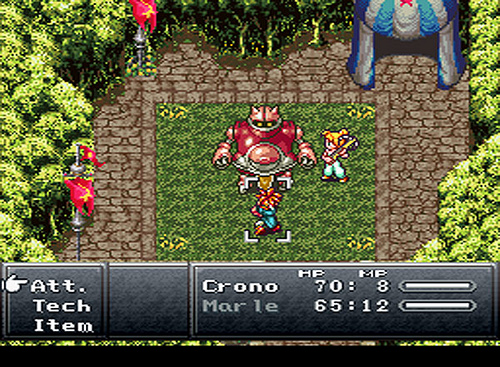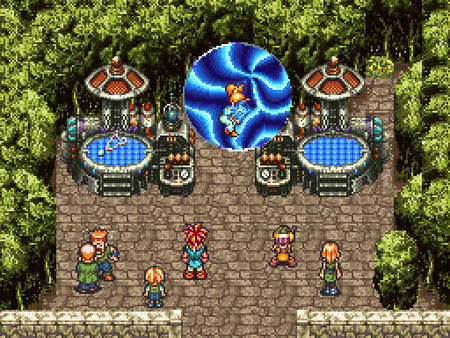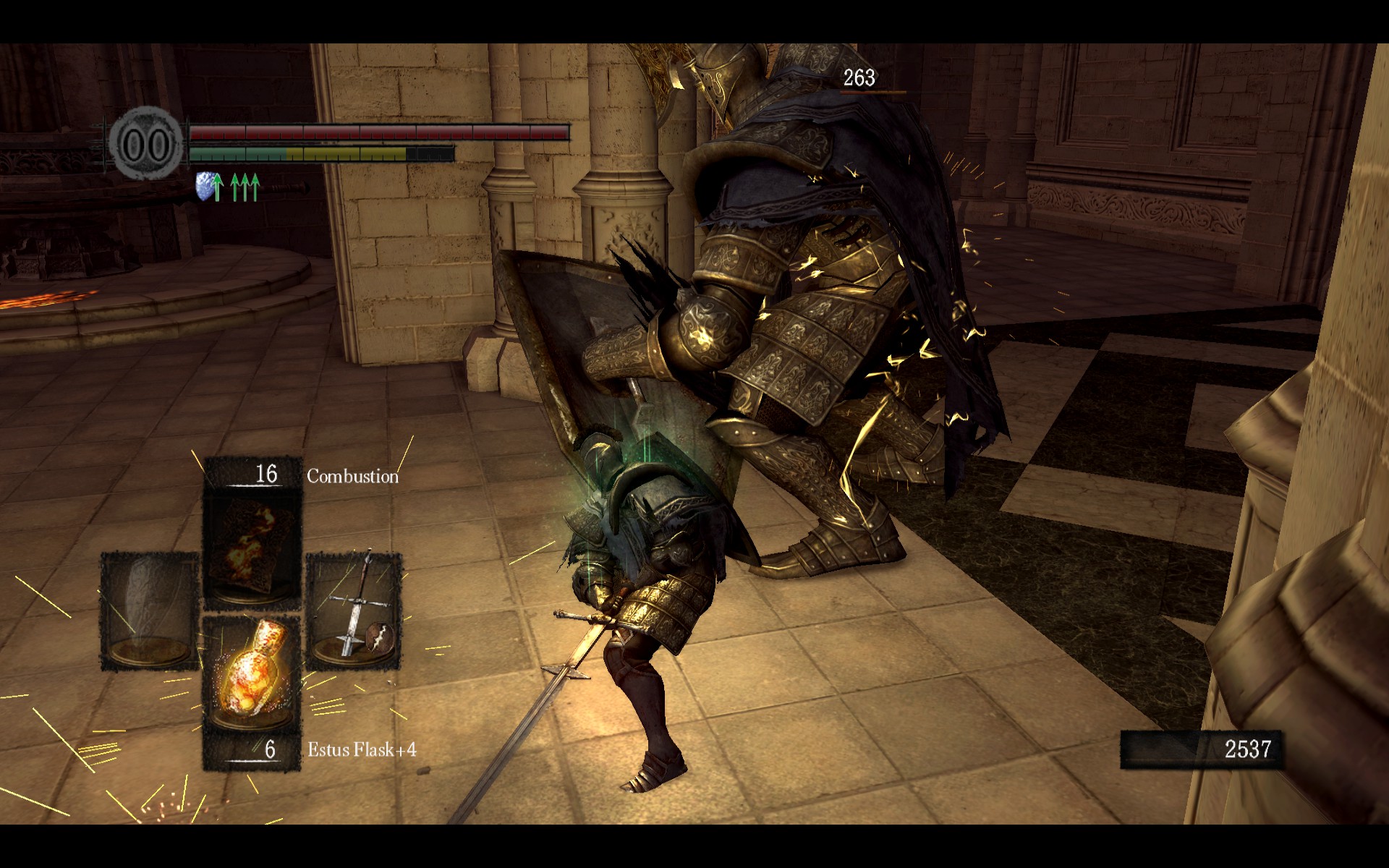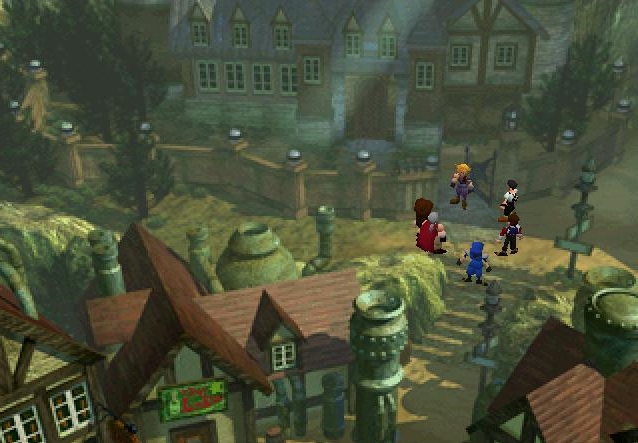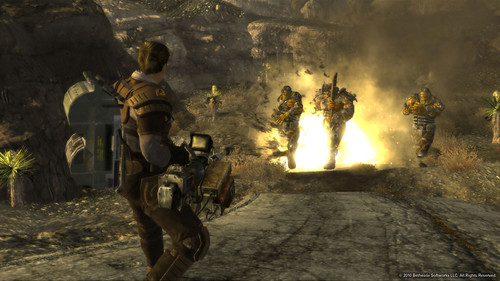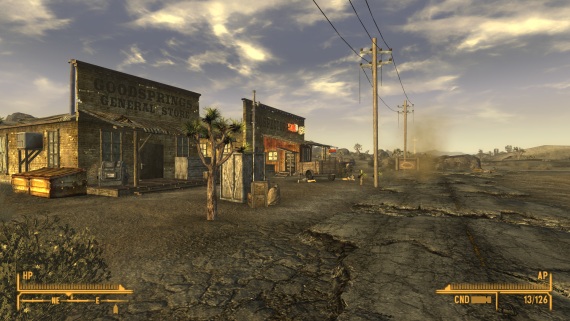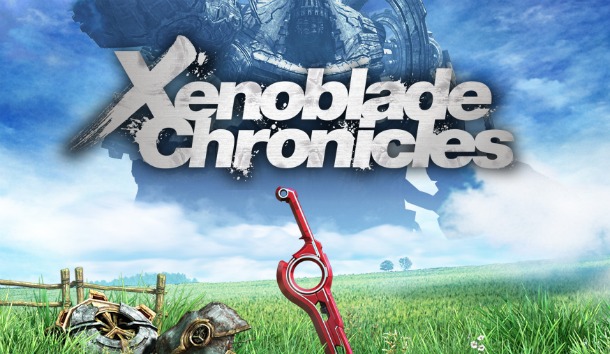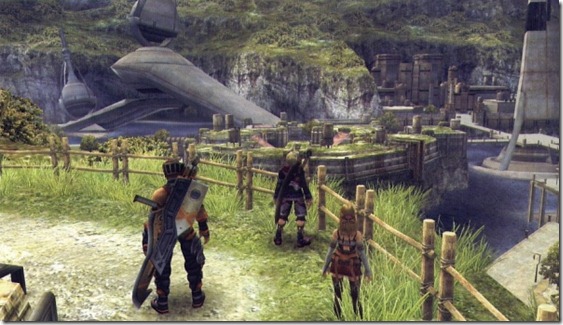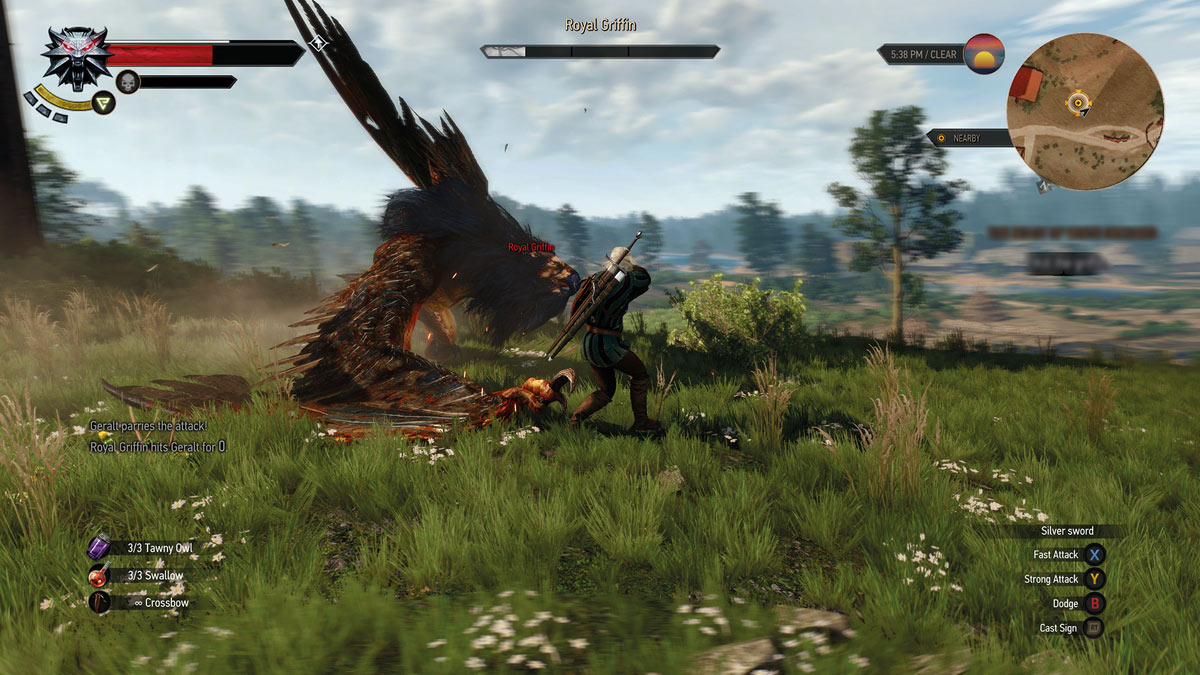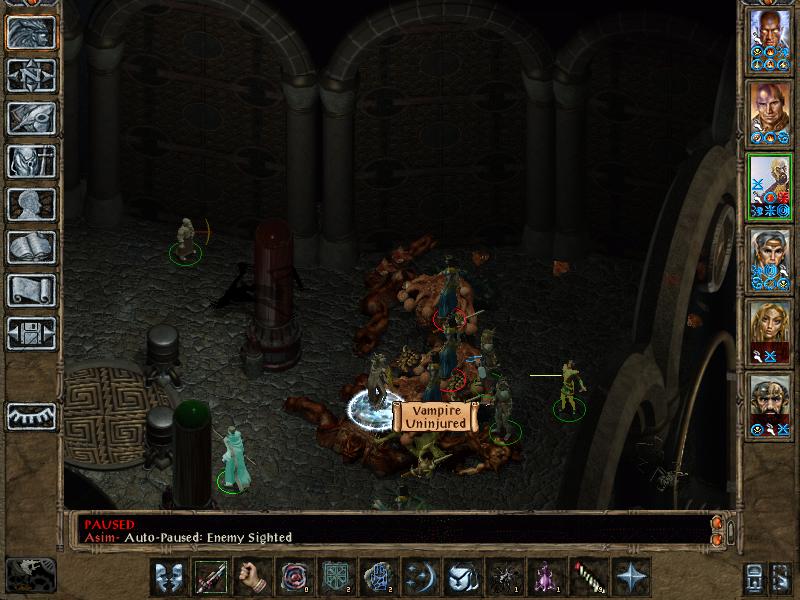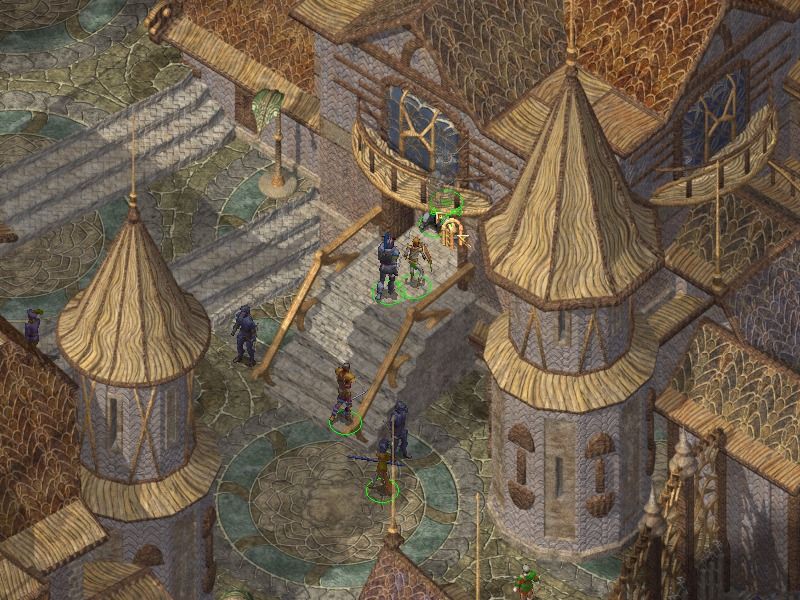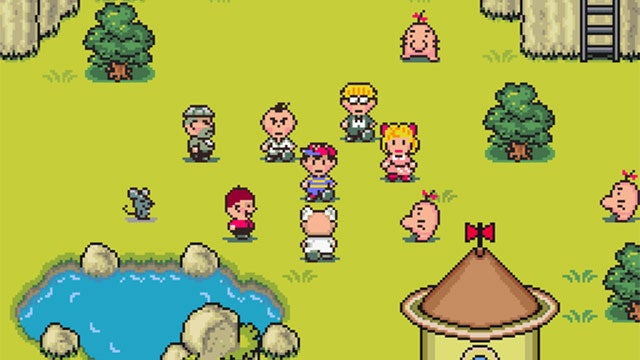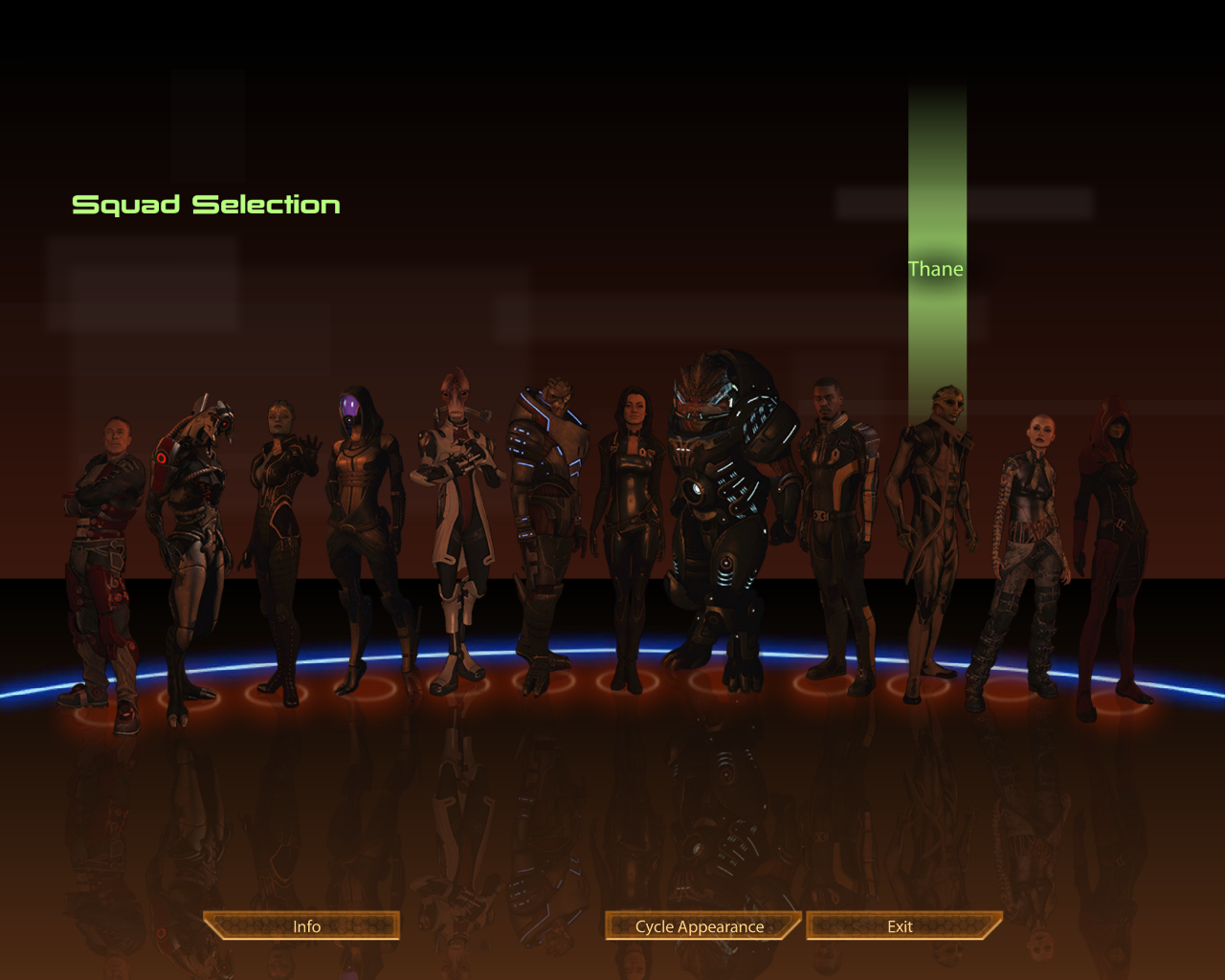KuwabaraTheMan
Banned
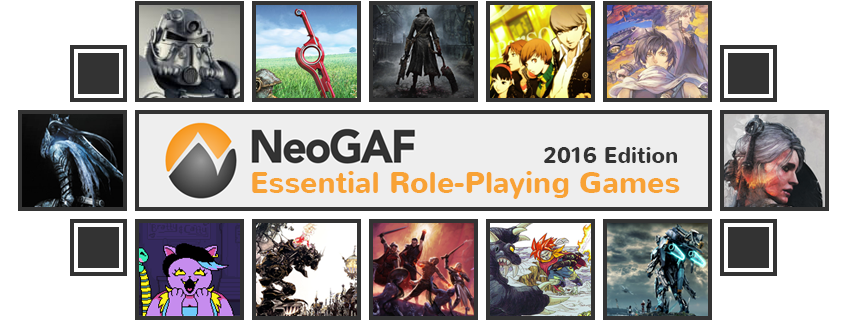
Welcome to the 2016 edition of NeoGAF's Essential RPGs!
If you're new to these threads, it's quite simple. This is an exercise in selecting what the community on NeoGAF considers to be the most essential RPGs of all time are, via everyone in the community voting in this thread. At the end of the voting, we'll have a big list collecting most of the top RPGs of all time. The goal of this list is to help highlight some of the most high quality or otherwise essential RPGs. As RPGs have a long and diverse history, and tend to be very long, it's easy for people to miss out on a lot of great RPGs. These threads were created in part to help curb that issue and shine a light on some of the RPGs that are most worth playing.
Folks familiar with past iterations of the thread might notice that I'm not original thread creator kswiston. He's had to step away from running these threads due to the time commitment involved, so I've decided to step up and take over running the thread for this year. I've made a few tweaks to how the voting is handled, so make sure to read through that and familiarize yourself with the changes.
After one month of voting, more than 100 posters have voted on what they consider the most essential RPGs overall, as well as what RPGs they specifically consider essential based on soundtrack, combat and writing. I'll be putting writeups for everything eventually, so this post will remain a work in progress for a little while. Please bear with me as I try and get everything up here sorted.
The Top 5:
1. Chrono Trigger:
Last Year's Rank: 1, Essential Soundtrack, Essential Combat, Essential Writing
Platforms: SNES, Playstation, Nintendo DS, Virtual Console, PS1 Classics, Mobile
Released in 1995, Chrono Trigger featured one of the biggest all-star casts of RPG creators coming together ever, being formed by a collaboration from Final Fantasy creator Hironobu Sakaguchi and Dragon Quest creator Yuji Horii. For more than 20 years it has now been considered one of the hallmarks of the genre.
Chrono Trigger features a heavily modified version of Square's Active Time Battle system, with battles taking place directly on the field rather than on a separate screen. The game's story, primarily written by Masato Kato, is also a favorite of people, featuring a strong and memorable cast, and the heavy focus on time travel and alternate endings has served to both engross players in the story moreso than most other titles and give it heavy replay value. The enhanced version for the DS added to this even more by adding an additional dungeon and a new ending.
Key staff members: Hironobu Sakaguchi (designer), Takashi Tokita, Yoshinori Kitase, Akihiko Matsui (directors), Masato Kato, Yuji Horii (writers), Yasunori Mitsuda, Nobuo Uematsu (composers), Akira Toriyama (character designs)
Other notable staff: Tetsuya Takahashi (graphic director), Yasuyuki Honne, Tetsuya Nomura (graphic artists)
Soundtrack Samples: Corridors of Time, Memories of Green, At the Bottom of Night
The perfect JRPG in so many ways, really only ranked below Dragon Quest VII because this is my list and I said so. Exceptional combat with minor positioning that separates it from other JRPGs of the era, a unique setting and story, and a dense world rather than a sprawling one; a rarity in this genre. I have yet to meet someone who has played this and didn't adore it.
Im hesitant to dare and call a game perfect, but Chrono Trigger is one of the select few that may apply in my book. Its music, sprites and battle system will immediately stand out, but Chrono Triggers greatest strength does comes from its writing. Its not the most verbose game, but its expertly paced. Your short-term goals are always clear and within reach, and the time-travel set-up ensures that the agency of the central conflict is not compromised by detours. The game has a lot of memorable scenes and details thatll stick with you for a long time.
Chrono Trigger has been and always will be my favorite game of all time, so no surprise that I consider it essential. It has everything you need for an RPG - great characters, a great soundtrack, and a great story that doesn't overstay its welcome, and yet gives you plenty of content to make it a world worth exploring. On top of that, the game is created in a way that through New Game+ you can experience loads of completely unique endings that give you extra story on top of the baseline. It was the first RPG I ever played, and I believe it's one of the best RPGs ever made and definitely anyone who loves the genre should play it if they haven't already.
This game holds a deeply personal connection to me, partially for its music, partially for its stellar execution. It is one game I can say I've never felt like I've wasted my time playing. There is always a real sense of movement in the game and that's constructed from start to finish with the time hopping and impressive amount of detail in such a (relatively) small space. It's been my favorite game for a lot reasons that aren't easy to describe but mostly relate to me being a kid in Texas and it being so ridiculously hot outside that playing games was sometimes all you could really do. And this was the videogame I was always playing during those times, sitting in front of a fan and enjoying the hours roll by. Zeal was a touchstone moment for the game and unforgettable in every way. It's still awe-inspiring to this day and also a strangely sharp moment about the fragility of power, real or imagined.
2. Persona 4:
Last Year's Rank: 2, Essential Soundtrack, Essential Writing
Platforms: Playstation 2, Playstation Vita
Following up from the well-regarded Persona 3, Atlus's Persona 4, released in 2008, took what people loved about the previous game and enhanced it in a number of ways. Featuring a mix of daily life/dating sim elements and a traditional turn based RPG, Persona 4 has a very unique style of game play that few other RPGs can boast. In addition to that, the setting of a small town in rural Japan creates an atmosphere unlike almost anything else found in gaming. The game's story, featuring the characters trying to catch a murderer, and the strong and well-developed cast of characters have earned the game constant accolades since its release.
Key staff members: Katsura Hashino (director), Yuichiroh Tanaka, Akira Kawasaki (writers), Shoji Meguro, Atsushi Kitajoh (composers)
Soundtrack Samples: I'll Face Myself, Heartbeat, Heartbreak, Reach Out to the Truth
As the sequel to my number 1 game, this game naturally scores high. It does everything Persona 3 does, but with a more upbeat tone. The game has an engaging and clever story tying supernatural happenings, weather cycles, and a hidden TV dimension, and manages to have a lot to say about accepting others and the way that the media can distort the truth. The characters are very lovable and seeing them through their day to day lives makes you grow attached, in a way that is distinct from P3. The characters live more "normal" lives and there's a real joy in just hanging out at Junes or eating at the Chinese restaurant in Inaba. The game also has a ton of content and a more streamlined battle system than P3.
There was a time when I pretty much stopped playing videogames and focused on my other hobbies. I don't remember why or what made me pick up Persona 4, but I did. It got high scores, I read good things about it a few times (keep in mind this is circa 2009-2010, when the game was not nearly as popular as it is now) and for some reason it just picked my curiosity, and I'm freaking glad it did. I was so invested in the story, characters and setting of this game that I'd just play it for 10 hours straight like I've rarely done for a game since.
In the end I realized Persona 4 kinda teaches you how to be a better person. Yeah, it simplifies things a lot, it's a game duh, but very basic stuff such as caring about your friends and social links, and training other disciplines to develop yourself as a person are things that properly map to real life. Yes, common sense to most people, but eye-opening to others.
To me, this game is about friendship. The power of friendship is commonly explored in jRPGs, often in cliche ways, including this title, but Persona 4 is the one that does it the best. Building friendships requires time, effort, and most importantly, love. P4 doesn't force you to build those friendships, but it certainly rewards you for doing so. On a personal note, the ending really clicked with me:I recently moved away from my hometown and left my friends behind. This game made me promise myself to never forget about them.
Of all the video games I have played, Persona 4 might just have my favorite cast of characters.
Every member of the group you accrue is a distinct, fleshed out person with different motivations, personalities, and secrets that you get to discover by making the decision to spend time with them. They all have entertaining and believable dynamics with each other, driven home by superb voice acting and excellent dialogue from Atlus' localization team. The strength of these dynamics, along with just how convincing they were and how real they felt, was what barely earned P4 my Best Writing award.
It was remarkable, the amount of depth they went to with each character's psyche. Kanji and Naoto's stories in particular are amongst the frigging coolest things I've seen a JRPG do, even if I don't think that those arcs reached their full potential, and they're a big part of why I love both those characters so much.
3. Dark Souls:
Last Year's Rank: 3, Essential Combat
Platforms: Playstation 3, Xbox 360, PC
The spiritual successor to Demon's Souls, From Software's Dark Souls continued in the tradition of providing an intense action RPG with a high level of challenge along, while expanding the game out from its predecessor into a vast open world. Dark Souls has received a large amount of praise for its art direction as well as for a very involved and deliberate combat system that forces players to take everything about their abilities into account, including the animation.
Key staff members: Hidetaka Miyazaki (director), Makoto Satoh (artist), Motoi Sakuraba (composer)
Soundtrack Samples: Ornstein and Smough, Firelink Shrine, Nameless Song
When I first played this game after buying it at launch, I played for about two hours before giving up in frustration in the Undead Berg. That night, while trying to get to sleep, I wondered to myself if I had my a poor purchasing decision and if I should just return the game. The next day, I resolved to give it another chance before doing so, and proceeded on to one of the most rewarding games I've ever encountered. Yes, the game is going to kick your ass over and over, like it did mine, but only to teach you Dark Souls' greatest lesson: patience. Take your time, observe your enemies, strike when there's an opening, and DON'T just run through after a boss kills you for the 8th time. Don't be afraid to look for outside help, as I wouldn't have finished the game without it. Once you find a playstyle that fits you, the frustration that seems to envelop the game will drift away, leaving a playground to have a hell of a time in.
The greatest combat system in a game that people call an RPG. Although it doesn't explain much in terms of its mechanics, when you finally dive in the combat is deep and satisfying. There are multiple different ways to play Dark Souls which is the beauty of the system. Magic, Melee, and Hybrids are all viable.
Less is more, evidently. Dark Souls did a lot of things that sound terrible and risky on paper. It dared to make combat slow and ploddy when its contemporaries were extreme and crazy. It dared to take an archaeology style of storytelling when everyone else was trying to ape movies. It dared to make you suffer for death, when other games were practically eliminating progress loss. And best of all, DS1 tied all the systems from plot to combat to even the multiplayer into it's vision of a dying world.
A dark fantasy Berserk-like world infested with dangerous creatures everywhere? Check. A challenging, satisfying yet not overlycomplicated combat system to complement said setting? Check. One of the most well designed 3D worlds in gaming which rewards exploration and curiosity? Check. Great soundtrack? Check. Praise the sun? Check. Dark Souls just has it all, and might as well have been my number 1 spot if not for some late game stinkers such as Lost Izalith and Crystal Cave. Truthfully, this is the game I'd have awarded "Best Combat" if there was a "Best Art Direction" category to give to Nocturne, but it was not to be.
4. Final Fantasy VII:
Last Year's Rank: 6, Essential Soundtrack
Platforms: Playstation, PC, PS1 Classics, Playstation 4, Mobile
Credited by many people for helping to propel the Final Fantasy series to the mainstream in the west, and considered to be one of the most important titles ever released for the PlayStation, Final Fantasy VII has been a phenomenon ever since its 1997 release. Featuring the series move into 3D and a more cinematic style, it was also the most realistic looking and futuristic focused Final Fantasy at the time, a move that would define most of the franchise going forward aside from a few exceptions. The story of Final Fantasy VII captured the interest of people so much that it has received numerous spinoffs, a sequel movie, and more set in the world, and the characters of the game have become well known even to people who have never played the game. With the well established Active Time Battle system of the Final Fantasy series, as well as the game's materia system giving players a lot of options for customization, Final Fantasy VII stands as an obvious choice to show someone just what a JRPG is.
Key staff members: Yoshinori Kitase (director), Hironobu Sakaguchi (producer), Kazushige Nojima (writer), Tetsuya Nomura (character designer), Yusuke Naora (art director), Nobuo Uematsu (composer)
Soundtrack Samples: One Winged Angel, Opening Bombing Mission, Aerith's Theme
I think this is still "quite possibly the greatest game ever made." It's a masterwork in pacing, constantly putting you in different scenarios outside of the RPG monotony of talking to NPCs and fighting monsters. Kitase's use of the camera to present different scenes was excellent and the seamless transitions between cut scenes and game play gave rise to the cinematic set piece. In many ways, FFVII was the first AAA blockbuster. For a genre steeped in repetition, every environment was unique and the dynamic combat camera made for fast, thrilling encounters..
Sakaguchi and Kitase work together again for what some call the definitive JRPG. Moving the genre from two dimensions to three while simultaneously creating a world more mature and impactful than previous role-playing games, yet balancing the charm and levity Sakaguchi is now known for, FFVII came to become many people's first experience with the genre, including my own. It's effect on the medium of gaming cannot be understated.
The game that set the stage for everything that came after. It has numerous well-documented flaws, but this game showed the potential for what could be in the JRPG genre. A truly ground-breaking game at the time.
My favorite aspect of this game is the world. The incredible detail in the prerendered backgrounds show a very imperfect world. The slums of Midgar are iconic, and unforgettable. The world is in turmoil, an environmental crisis looms and the creativity shown in the world is impressive. I also think it has one of the best OSTs of any game. The music is wonderful. There are somber themes, like on the world map, and catchy energetic ones like the battle theme. Almost every song is a hit.
5. Fallout: New Vegas:
Last Year's Rank: 12, Essential Writing
Platforms: PC, Playstation 3, Xbox 360
A Fallout spinoff released following Bethesda's Fallout 3, Fallout: New Vegas was developed by Obsidian and featured several veteran developers from the original Fallout games playing key roles. While the gameplay itself followed on from Fallout 3's, although with some improvements added, the game received major accolades for its writing, and especially for the game's quest design which featured a much larger number of branching options than almost any of its peers. While plagued by bugs at release, the quality of the writing, as well as director Josh Sawyer's dedication to releasing unofficial mods to his own game even after the publishers stopped paying, have lead to New Vegas being considered one of the true RPG gems of the 21st century.
Key staff members: Josh Sawyer (director), Chris Avellone (writer), John R. Gonzalez (designer/writer), Charles Staples (designer), Eric Fenstermaker (writer), Inon Zur (composer)
For old school RPG fans, Fallout 3 was a dissatisfying follow up to Fallout 2, one of the most respected RPGs of its era. New Vegas is the real successor here - an evolution of Fallout 2 AND 3 in ways not even Fallout 4 could manage. The writing, quests, characters are all some of the best in any RPG I have played and it is in stiff competition with games like Dark Souls and Super Mario Galaxy as last generation's best title.
Obsidian does it better, plain and simple. I knew Fallout 4 was going to suck, Fallout 3 warned me of this. Unlike most high profile WRPG developers of this age, rather than focusing on big worlds for exploration or flashy effects, Obsidian brings their Black Isle roots and puts actual role playing as the main focus. Fallout: New Vegas is essentially Fallout 2 in 3D given a cowboy theme. It has an objective it sets out to do and it does it very well. Out of all of the high-profile mainstream WRPGs of last generation this is the only one to me that felt that it deserved its acclaim. Here is hoping for Obsidian to develop the real Fallout 4.
Obsidian took Bethesda's engine and Fallout 3's gameplay and combined with top tier writing and elaborate quest design. Obsidian knows how to make RPGs, and it shows through and through with this one. In New Vegas, they designed a world that makes sense, with characters that feel like actual inhabitants of it, rather than just NPCs sitting around waiting for you to show up. The multiple factions at war with each other provides an excellent setting with plenty of choices for you to make. The added weapon mods heavily enhance the gameplay, and the faction neutrality system provides a lot of depth. New Vegas is one of the best modern RPGs you can play.
The story is a simple one culminating into a logical climax at Hoover Dam but the road to that climax is great and filled with memorable quests. Every quest provides you with a variety of solutions (I assume everyone has seen the White Glove Society flow chart by now, that's how great quest design can be!) and really help reinforcing the feeling that you are playing a role. Patching up enemy soldiers to increase morale? Sure, I have the necessary medical knowledge! Replacing the skill checks by a charisma check was probably one of the worst decisions in Fallout 4. The game has some great armour sets especially in the DLC's (hello Riot gear!) and a huge variety of weapons in display. At times Fallout: New Vegas feels like role-playing heaven but sadly at other times the engine's limitations come into play, mainly the floaty combat and terrible facial expressions. Despite that, Obsidian has done a wonderful job into creating their own Fallout game with its own distinct style, mixing it up from the usual post-apocalyptic style that Fallout 3 and 4 have.


